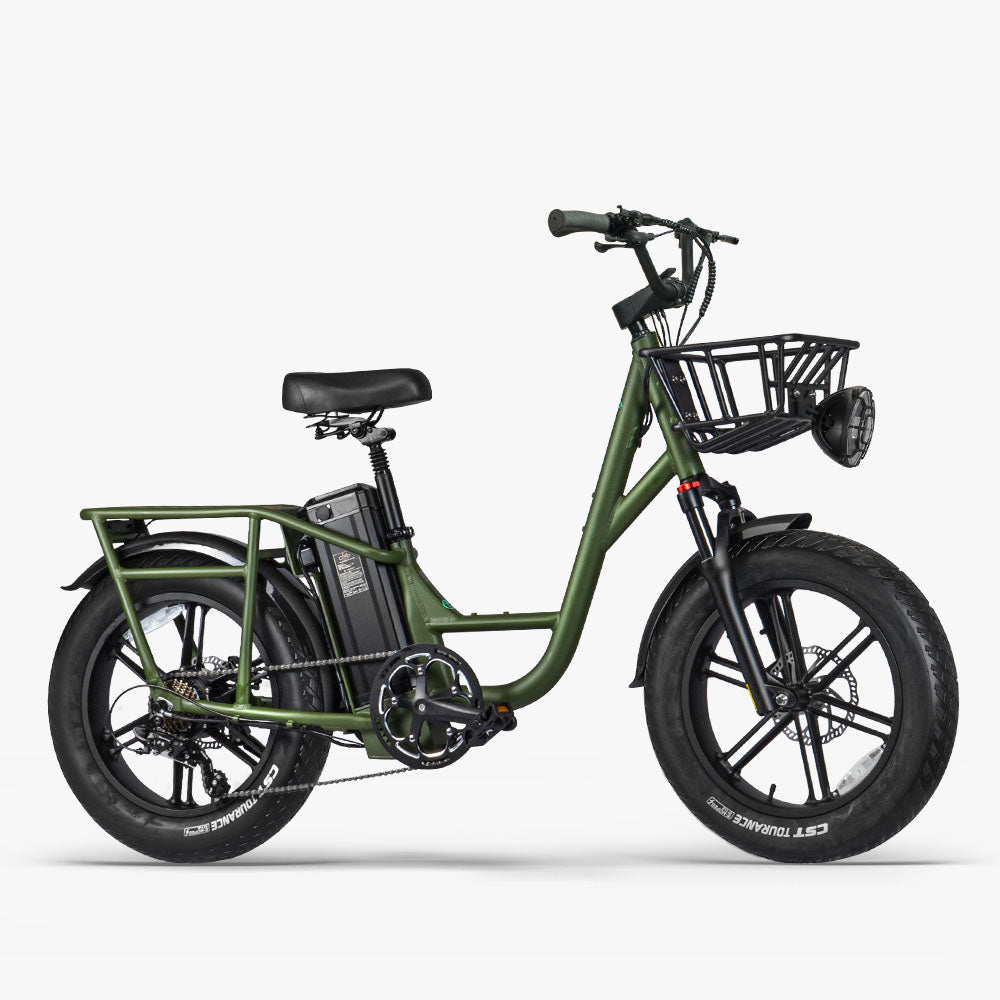With the rise in popularity of electric bikes, people are beginning to wonder if they need insurance to ride them. This is understandable, as it can be difficult to determine whether your local laws require you to insure electric bikes, as they are in a grey area between motorcycles and regular bikes. Therefore, in this article, we will explore the legal definitions, different types of insurance, and the importance of considering insurance for your electric bike.

Legal Definition and Classification Of Electric Bikes In The USA
Before we get into the details of insurance, let's look at how the law sees electric bikes and classifies them.
Legal Definition Of Electric Bikes
Electric bikes are bicycles equipped with an electric motor to assist with propulsion. According to U.S. federal law, an ebike is defined as a bicycle with fully operable pedals and an electric motor of fewer than 750 watts (1 horsepower). The motor should not be able to propel the bike faster than 20 mph on level ground when solely powered by the motor.
Classification of Electric Bikes in the United States
Electric bikes are typically classified into three categories:
- Class 1: Pedal-assist bikes with a motor that assists only when the rider pedals and ceases to assist at 20 mph.
- Class 2: Throttle-assist bikes with a motor that can propel the bike without pedaling but also stops assisting you at 20 mph.
- Class 3: Pedal-assist bikes with a motor that assists up to 28 mph, often with additional speed restrictions and helmet requirements.
It is worth knowing about these different categories of electric bikes. The laws on electric bike usage are often different between states and even cities. Therefore, you need to know which type of electric bike is allowed in your local area to stay on the right side of the law.
Tip: Some regions may have different requirements for electric bicycles. It is recommended that you learn about local laws and regulations in detail before purchasing an electric bicycle to ensure compliance.
Regulatory Requirements for Electric Bikes in Different States
Compared to motor vehicles, an ebike has significant differences in terms of power, speed, and use. Therefore, motor vehicles such as cars and motorcycles require registration, a license, and insurance by law. This is because of their higher speeds and potential for more severe accidents. On the other hand, an ebike can operate at low speeds and be used on bike paths and trails.

Types Of Insurance For Electric Bikes
Even though electric bikes aren't required by law to be insured, we recommend you do so. This is because your ebike may get stolen from home, outside work, or wherever you leave it during a day out. Additionally, insurance can protect you from legal fees if you happen to damage something or injure someone while riding. So, what options are there for electric bike insurance?
Homeowner's or Renter's Insurance
If you are a homeowner or renter, you may want to look through your insurance policy to see if there is an option to cover your electric bike under personal property coverage. This should cover you for theft or damage while the bike is at home. However, it's worth noting that these policies may not cover liability or accidents occurring away from home.
Standalone Ebike Insurance
Standalone ebike insurance policies specifically cover electric bikes. These policies should cover you for theft, damage, and liability. Some even offer roadside assistance and coverage for accessories such as lights and cycling computers.
Health Insurance
Health insurance isn't specific to electric bikes, but it is crucial for covering medical expenses in the event of an accident. This type of insurance won't cover damage or theft of your ebike, but it will take care of any medical costs. Just make sure that ebike usage is not excluded from your policy, or ask your provider to add it.
Auto Insurance
In some cases, auto insurance policies can be extended to cover ebikes, especially if the ebike is used similarly to a moped or scooter. This can include liability and collision coverage.
How to Choose Electric Bike Insurance
If you are new to electric bikes or insurance, it can be tricky to choose a suitable policy that adequately covers you. Here are some tips on how to choose electric bike insurance.
Assess Your Needs
Consider how you use your ebike. For example, do you commute on an electric bike or have an off road electric bike purely for fun? If you use your electric bike frequently in various locations, it may be a good idea to choose a standalone electric bike insurance policy. On the other hand, if you only ride your ebike around your home, check if your homeowner's or renter's insurance covers it.
Compare Policies
Choose a handful of policies from different insurance companies to compare. Look at the coverage they offer, premiums, and deductibles. The best policies cover theft, damage, and liability comprehensively.
Read the Fine Print
Ensure you understand the terms and conditions of your insurance policy before you buy it. Some insurance companies can be sneaky and add exclusions or specific conditions under which the coverage applies. If you fall foul of the small print, your insurance policy isn't worth the paper on which it is printed.
Customer Reviews
It's a good idea to find some reviews and ratings of insurance providers. Pay attention to good and bad reviews to give you a more comprehensive picture of their reliability and customer service.
Fiido T1 Pro Utility Electric Bike
A powerful utility ebike with an impressive 150 km range.
Conclusion
Electric bikes are a fantastic way of getting around. They are convenient, eco-friendly, and low-cost modes of transport. However, with the growing use of ebikes, owners need to consider buying quality insurance to protect them against theft, damage, and liability. By understanding your needs, comparing policies, and choosing the right insurance, you can have peace of mind while enjoying and using your electric bike.
If you are looking for a quality ebike, why not check out the Fiido website? There are some excellent examples suitable for all kinds of electric bike riders, whether you want a commuter, cargo bike, or off-road electric bike. The range consists of some of the most affordable but highly-rated electric bikes on the market right now.














